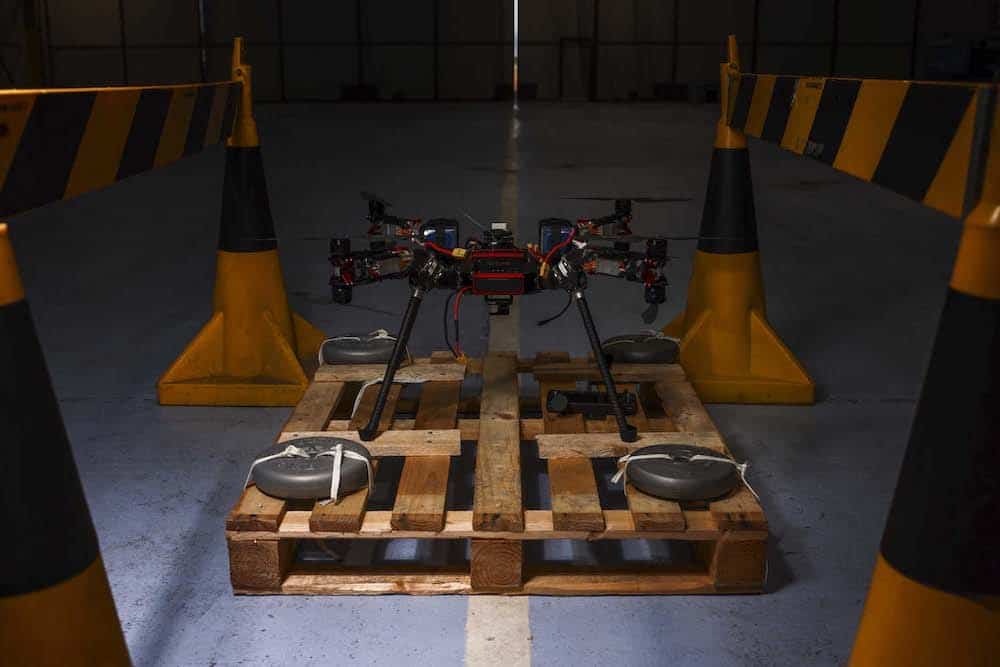



Picture: LPhot Barry Swainsbury
Personnel from the UK Royal Navy’s 700X Naval Air Squadron have built their first remotely-piloted air system that, once tested, could be used as a testbed for sensors and delivering other payloads.
The 20kg octo-quadcopter is named Walrus after the flying boats pioneered by 700 Naval Air Squadron and flown from cruisers and battleships during the Second World War.
“This is the first time the navy has built its own air system using basic components,” said Lieutenant Kristian Lilley, who is overseeing the testing of the drone. “It’s an important step in our recognition of endorsed manufacturer status with the Military Aviation Authority.
“Built to high, aviation standards, the Walrus will be used specifically as a testbed for sensors and other sensitive payloads. It will be our independent test and evaluation platform. As we’ve built it, we know the system and exactly what it’s capable of.
“We’re now testing it using a rigorous regime [at RNAS Culdrose] in a controlled environment. When we’re confident it’s operating correctly and safely, we’ll conduct our first flying tests, probably in the new year.”



 Pictures: LPhot Barry Swainsbury
Pictures: LPhot Barry Swainsbury
700X Naval Air Station is the Royal Navy’s expert unit in the research, training and deployment of remotely piloted air systems. The squadron is a mix of Royal Navy personnel of various branches, Royal Marines, civil servants and contractors, and is based at RNAS Culdrose, UK. It uses nearby Predannack Airfield as a center of expertise for flights and training.
“This project is just one strand of our work in researching, evaluating and deploying RPAS technology at the forefront of Royal Navy operations,” said Lieutenant Commander Martin Howard, the squadron’s commanding officer. “It’s an important step in gathering knowledge and expertise in this ever-evolving field. As a squadron, we already train personnel across defense in the use of RPAS. We have flights which deploy the Puma air system to warships around the world and we are constantly testing and evaluating new systems from industry. This work will serve to strengthen all our outputs and is an important step forward for the Royal Navy.”
According to the Royal Navy, this announcement is another example of the importance being placed on emerging drone technology.

 Pictures: LPhot Barry Swainsbury
Pictures: LPhot Barry Swainsbury
Source





Related Posts
New Drone Fires Thales Missile in Unmanned Air Combat Milestone
UAS Startup Accelerator Awards 3M in Funding
US Navy Orders Unmanned Tactical Resupply Aircraft